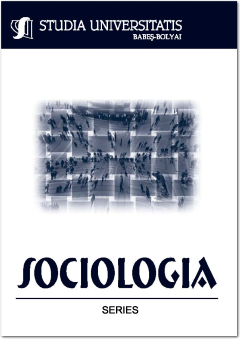EDUCATION FOR (UN)SUSTAINABLE DEVELOPMENT: RECOGNIZING ANTHROPOCENTRISM IN ROMANIA’S SUSTAINABLE DEVELOPMENT STRATEGY
EDUCATION FOR (UN)SUSTAINABLE DEVELOPMENT: RECOGNIZING ANTHROPOCENTRISM IN ROMANIA’S SUSTAINABLE DEVELOPMENT STRATEGY
Author(s): Maria MartelliSubject(s): Political Ecology, Environmental interactions
Published by: Studia Universitatis Babes-Bolyai
Keywords: political ecology of education; education for sustainable development; anthropocentrism; Eurocene;
Summary/Abstract: The environment is no longer a backdrop, but an agent pressing us to restructure our economic and political systems, down to our livelihoods. This research aims to make a critical overview of the Sustainable Development (SD) model. It looks at how market fundamentalism and anthropocentrism are driving forces in the shaping of its proposed form of education: education for sustainable development (ESD). This “new” educational paradigm aims to support the SD strategies that are globally implemented and “localized” at the nation-state level. The current SD model and the Agenda 2030 operate within a specific framework of the nature/culture divide, one that reiterates human domination. As such, this research aims to analyse the educational values within the idea of sustainable development – one that wishes to “reorient” society but instead ends up emphasizing it in its anthropocentric form. It does so by close reading and analysis of the UNECE Strategy for Education for Sustainable Development and Romania’s National Strategies for Sustainable Development, 2008 and 2018. Concluding, it might very well be the case that restructuring schooling – and governing - to bring it up to the realities of climate change requires rethinking our fundamental educational values and the nature/culture divide, as well as making nation-states less servient of markets and less growth-oriented.
Journal: Studia Universitatis Babes-Bolyai - Sociologia
- Issue Year: 65/2020
- Issue No: 1
- Page Range: 91-110
- Page Count: 20
- Language: English

